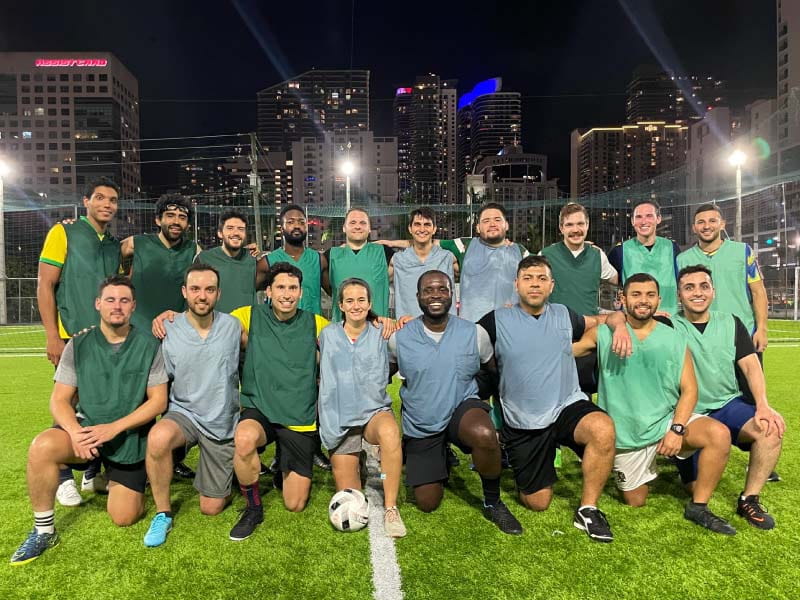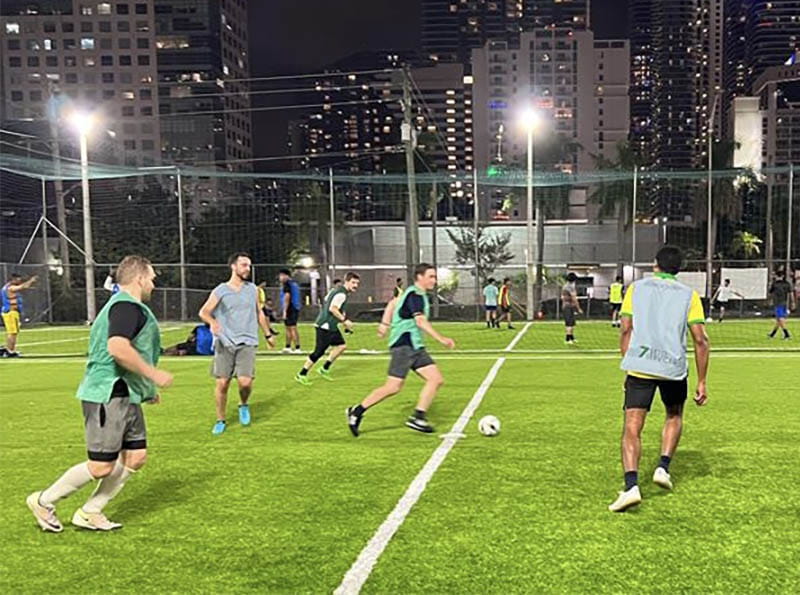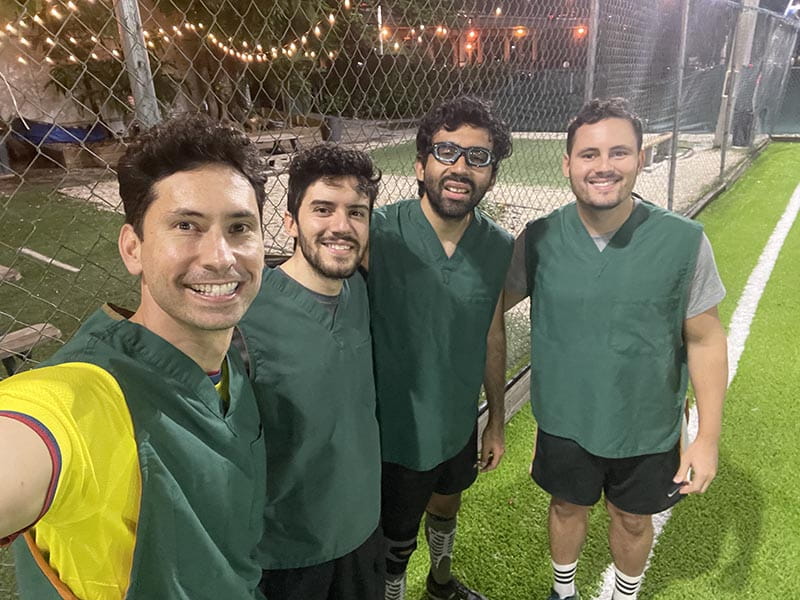Soccer helps these doctors stay on top of their game
By Laura Williamson, American Heart Association News

When Dr. Arianna Heyer left medical school in Philadelphia for an internal medicine residency in Miami, she found herself working constantly, with little time or opportunity to take care of her own health or make new friends.
A longtime soccer and basketball player, Heyer missed getting outside and moving. "I'm a very active person," she said. "It's part of my identity."
Then her chief resident told her about a group of soccer-playing doctors from south Florida hospitals who met two nights a week at a nearby field. She jumped at the chance to join them.
The games quickly became her favorite part of the week. Not only could Heyer play a sport she was passionate about, the games gave her a chance to meet people in her new city.
"We're very busy at work, and it's hard to meet people outside your group," she said. "But on the soccer field, we have people from every specialty and every level of training – in general surgery, anesthesiology, cardiology, orthopedics and geriatrics, to name a few. We're building a community here."

They're also building wellness, she said.
"Doctors, we sometimes let our own health go," Heyer said. "We work long hours, eat a quick bite, we have no time to exercise, and we have to do research. Truthfully, you can't take care of people really well if you're not taking care of yourself."
Promoting physician wellness was one of the driving forces behind the games, Dr. Gustavo Vargas said. Vargas didn't create the group – he joined the group during his last year of training in internal medicine. But the players met sporadically, and they often canceled or simply failed to show up.
Then the pandemic hit, and nobody could play. Once COVID-19 vaccines started rolling out, Vargas saw an opportunity: Maybe he could revitalize the soccer team and promote vaccination by showing people it was safe to get together again.
"People had a lot of hesitation," Vargas said. He found a field to play on and put the word out on social media. Eight people signed up out of the 150 registered on a group chat used to organize games prior to the pandemic.
That week, only five doctors showed up to play.
"It took me quite a bit of time to get the group to trust me," Vargas said. "And I noticed people arguing on the group chat about players putting their names down and not showing up. Doctors have emergencies. Sometimes we're on call and we can't leave work when we think we can."
Vargas put out a message acknowledging the challenges everyone faced and their commitment to patient care. He gently asked them to be mindful of everyone's time by letting people know if they had to cancel so replacement players could be found.
"They were responsive to kindness," he said. "We go through rough times at the hospital. Physicians burn out, but I told them we have to be kind, united and committed to what we say in the group chat."
When his colleagues told him how much they appreciated the supportive messages, Vargas realized the soccer team could fill another need: It could provide a sense of camaraderie and support for physicians who were often drained and under a lot of stress, especially because of the pandemic.
Vargas took his cue from the World Cup, the quadrennial soccer tournament that wraps up this weekend in Qatar. "We see how the World Cup brings the whole world together. I thought if I bring people from all the specialties together, it will create a better environment in the hospitals, and the ones who will benefit most are the patients."
He started sharing positive messages and articles from different medical journals with the group about overcoming burnout, fighting weight gain and finding a work-life balance. "The hospitals provide wellness training for doctors, but they do so through computer modules," Vargas said. "Promoting physicians' well-being takes more than a lecture and a module."
Vargas said the doctors responded well to the messages and his efforts to organize weekly games. He even created a design for a team shirt made from recycled scrubs.
"I love sports because it breaks down barriers and brings people together," he said. Over time, that's just what the games did.

The group grew to a network of 220 at seven south Florida hospitals. They went from playing for one hour a week to three. Now, Vargas has to limit participation for each game night, rotating teams so everyone has a chance to play.
Dr. Walter Ramsey plays at least once a week. Ramsey, a general surgery resident and research fellow, said the games have made it easier for him to build wellness into his week.
"It's very good for me and my mental health to have exercise that's on my schedule that's consistent," he said. "Exercise improves my attitude and helps me sleep better. It's something I look forward to every week."
Ramsey said the games have had an unexpected benefit: developing relationships with other physicians and hospital staff.
Not only does this create a nicer work environment, Ramsey said, it also has helped him make connections for his research. "I met people in neurology whose interests overlap with some trauma research I'm doing," he said. "It's helped me collaborate more with others."
Heyer finds just knowing she'll have a chance to play improves her mental health.
"For me, having the soccer group to look forward to can really change a tough day," she said. "If I know I'm showing up to soccer at 8 p.m. by the end of it, I will feel so much better. To have that to look forward to every week is really, really special."
If you have questions or comments about this American Heart Association News story, please email [email protected].







